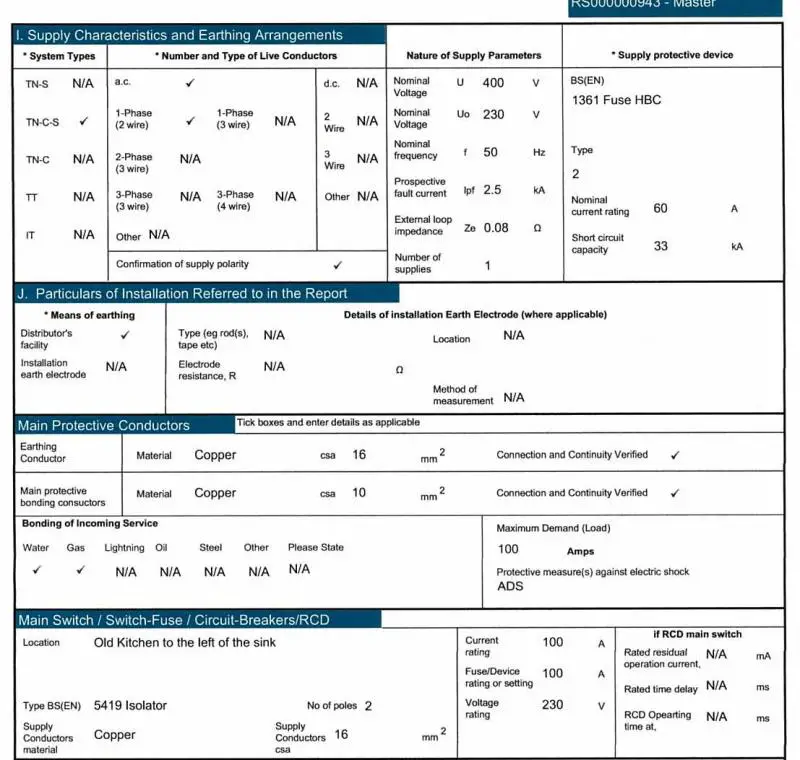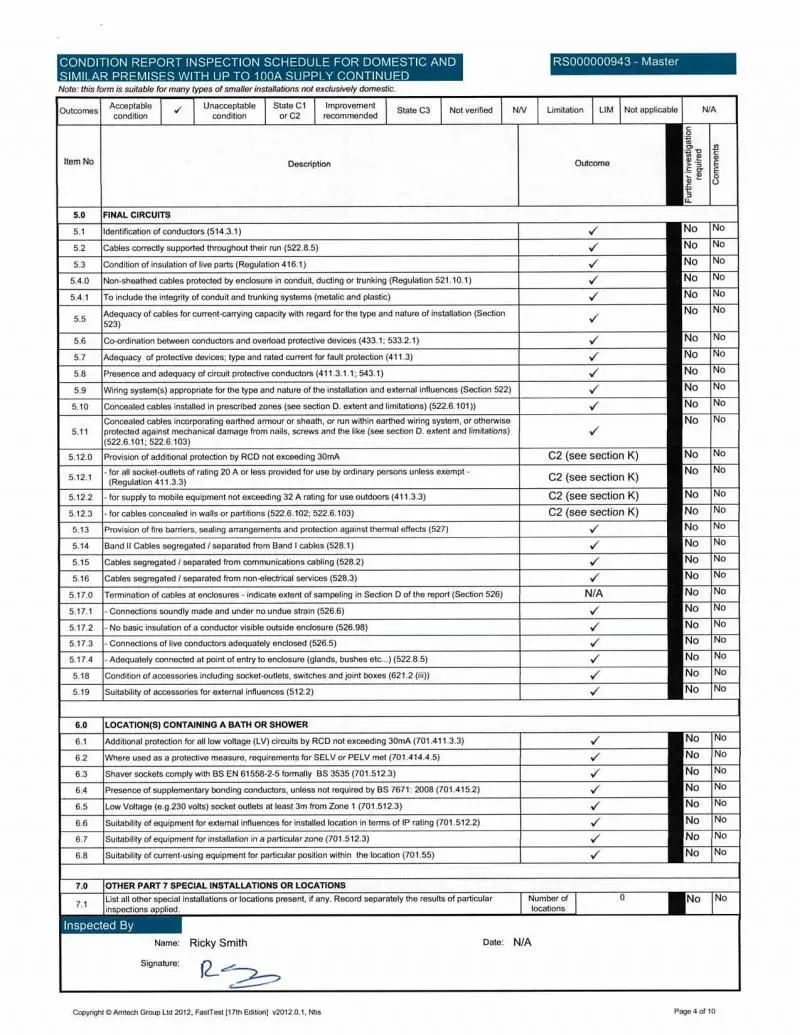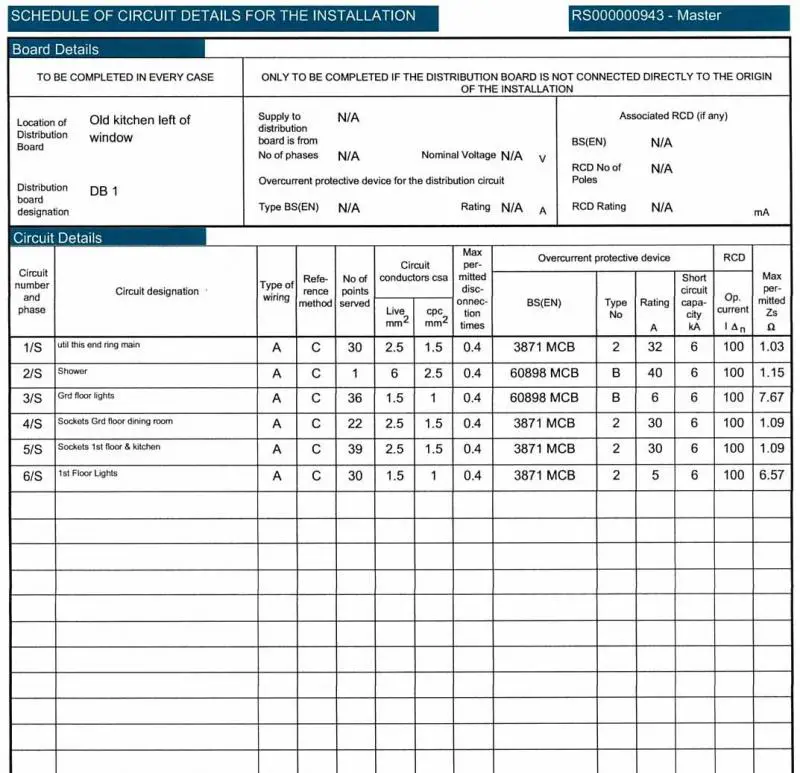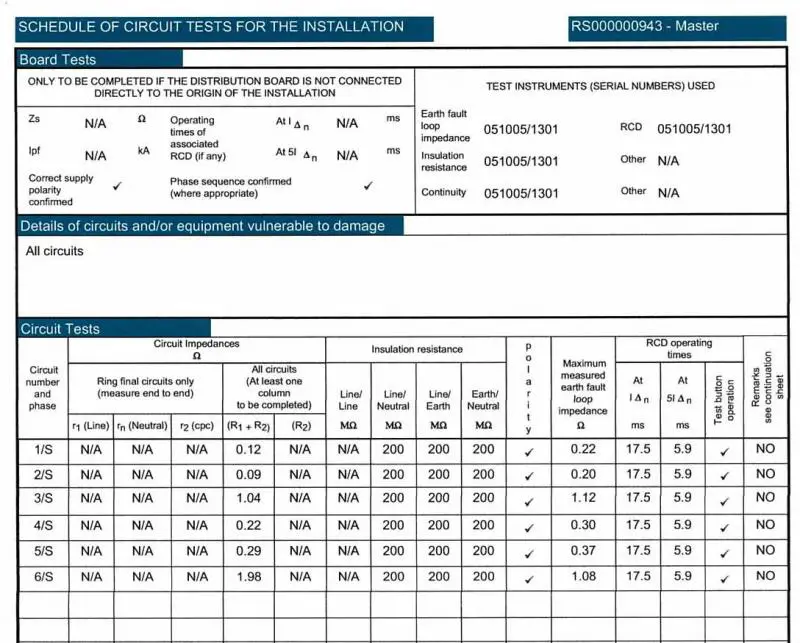About the 'general' public - yes.Am I wrong?
You are using an out of date browser. It may not display this or other websites correctly.
You should upgrade or use an alternative browser.
You should upgrade or use an alternative browser.
Inspection recommends new CU....
- Thread starter WabbitPoo
- Start date
Sponsored Links
That's what I thought. My mother certainly asked for one to be fitted in the mid-late 80s.Prenticeboyofderry usually educates people about RCDs lol. I think he has shares in an rcd manufacture.But seriously ppl were aware of rcds in the 1980s
As I've said, I fear that all the well-intentioned money which has been spent on them has probably achieved surprising little. We effectively know that they have had little or no measurable effect on UK deaths recorded as being due to electrocution in the home, since those figures have changed little throughout the period of progressive proliferation of RCDs. The effect on serious injuries is much more difficult to know anything about.
Whenever I ask here, or anyone else, just occasionally I come across someone who has experienced, or heard of someone experiencing, an electric shock which caused an RCD to operate (and, even then, they probably would not have died even without an RCD), but it seems to be an extremely unusual occurrence - and if that is not happening much, then clearly their can't be many lives and limbs being saved!
Kind Regards, John
This has come up before, and, to reiterate very quickly; actual fatalities might be misleading. I isolated the wrong circuit, put hands in washing machine, got jolt and RCD tripped. Colleague did same without RCD needed a year of skin grafts.
Like many interventions in safety there is no real way of knowing how often an RCD has prevented injury or death, and, with the exponential growth of electrical products, comparison with historical data is not useful. RCDs are in truth cheap and the use should not be discouraged using the wrong / misleading statistics. Today I heard on the BBC that the chances of being killed by a shark are less than the chances of being killed by lightning. Very true where I live on a Welsh mountain.
Edited for spelling
Like many interventions in safety there is no real way of knowing how often an RCD has prevented injury or death, and, with the exponential growth of electrical products, comparison with historical data is not useful. RCDs are in truth cheap and the use should not be discouraged using the wrong / misleading statistics. Today I heard on the BBC that the chances of being killed by a shark are less than the chances of being killed by lightning. Very true where I live on a Welsh mountain.
Edited for spelling
Indeed - as you say, we've discussed all that before.This has come up before, and, to reiterate very quickly; actual fatalities might be misleading. I isolated the wrong circuit, put hands in washing machine, got jolt and RCD tripped. Colleague did same without RCD needed a year of skin grafts.
It's always going to be difficult to get any data, and impossible to get particularly accurate data. I'm not sure about the 'exponential growth of electrical products'. There has been a large increase in electronic products, but they very rarely are the causes of serious electric shocks, and I'm not sure that there has been all that dramatic an increase in domestic electrical appliances over the past 35 or so years.Like many interventions in safety there is no real way of knowing how often an RCD has prevented injury or death, and, with the exponential growth of electrical products, comparison with historical data is not useful.
That depends upon how one looks at it. Pulling some rough figures out of the air, if 20 million households each had the two RCDs which some people would like them to have, and if the cost of sourcing and installing two of them was, say, £100 per household, that would add up to about £2 billion - which could perhaps do quite a lot for life and limb if expended in other safety-related areas, so one has to be (or should be) careful in one's thinking.RCDs are in truth cheap ...
I don't think you need to worry - the regs will prevent their use being discouraged, and will undoubtedly eventually get even tighter. Despite any discussions which happen here, it is all-but-unknown for someone now having a re-wire or a CU change not to end up with a couple of RCDs. The problem is not wrong/misleading statistics, it's the near absence of any statistics.... and the use should not be discouraged using the wrong / misleading statistics.
Kind Regards, John
Sponsored Links
- Joined
- 11 Jan 2004
- Messages
- 43,945
- Reaction score
- 2,884
- Country

But seriously ppl were aware of rcds in the 1980s
Houses in 1984 were springing up with SRCD's near the front and back doors.
Some houses had an RCD incomer fuseboard, or more often a stand alone RCD on the tails feeding the (usually) Wylex Standard CU.
I often found these stand-alone RCD's to be 100mA.
I did once come across an RS branded stand alone RCD that was labelled 50mA.
It stumped me because my tester was not set up for testing 50mA RCD's!!!
When we bought our present house in 1987, there were a couple of plug-in RCD adaptors plugged into sockets in the garage, and one plugged into a socket in the cellar - so people were obviously aware of them then.Houses in 1984 were springing up with SRCD's near the front and back doors.
Indeed, but presumably at least some of those were, or had been, TT installations. That's exactly the arrangement we had (100 mA RCD in tails plus Wylex Standard) in our (TT) installation back then.Some houses had an RCD incomer fuseboard, or more often a stand alone RCD on the tails feeding the (usually) Wylex Standard CU. I often found these stand-alone RCD's to be 100mA.
Kind Regards, John
Well the guy who did the quote has come back to me to explain that the CU needs replacing because it doesnt meet the 17th edition. I got him to repeat that.
That's the justification ofr the work, not that it is in any way dangerous.
That's the justification ofr the work, not that it is in any way dangerous.
Then he is just wrong and making money from unnecessary work.
You need a new car as well as yours doesn't meet the latest requirements.
You need a new car as well as yours doesn't meet the latest requirements.
That's what I gathered from the comments earlier. Think I'll pass on this for now. I get that to update the house elctrics ata leter date might mean an upgrade though as presumably any new circuit would mean a new CU?
Speaking with my Landlords hat on ...
Your duties are to provide a "safe" property. That's it.
The trouble is that there is "some debate" about what that means. As stated, there is no legal requirement to upgrade an existing installation to current standards, but as a landlord you also have the CYA angle to consider.
Put simply, your installation isn't unsafe, and there are a LOT of properties out there that are far worse. Where the CYA bit comes in is if something happens, and the tenant decides to make a few quid at your expense - sadly I've been on the receiving end of one of these, he succeeded with the neighbour over alleged damage to his van, but not with me over the damp he'd caused.
So there you are on the receiving end of a complaint that your electrical installation isn't "safe" - how do you show that it was ? Well the obvious and simple way is to have a "certificate" (aka EICR) which shows that the installation was tested/inspected and shown to comply with "current regs". As it is, you have an EICR which shows a number of "faults", so Grabitt & Screwem Solicitors could well use that to justify why you owe their poor and deserving client a bucket load of compensation (edit) for their injuries which you know to be caused by them being a muppet (or self inflicted, or completely false) but which Mr Grabitt will claim was your fault for having dangerous electrics.
Also with my landlords hat on, you seem to have fallen for the same trap that most new landlords (including myself some years ago) fall into - I'm guessing that you're new to this - of relying on an agent to deal with this sort of stuff. I'll leave it at "I'm somewhat dissatisfied" with agents I've used. I dropped one, went with another, and nearly got to the point of telling him he was incompetent and don't expect another penny in fees from me.
Obviously it's a lot harder if the property isn't close to where you live, as then you are more or less forced to use a third party to manage it. I'm lucky that way as mine are just round the corner and I do most of my own work.
One thing I wish I'd done sooner is come across the NLA (there's also the RLA) - I joined the NLA and have to say the library is very useful in terms of the information on your responsibilities and the law. I suspect that armed with the knowledge, you should be able to save more than the membership fee by being able to spot when someone is taking you for a ride.
Your duties are to provide a "safe" property. That's it.
The trouble is that there is "some debate" about what that means. As stated, there is no legal requirement to upgrade an existing installation to current standards, but as a landlord you also have the CYA angle to consider.
Put simply, your installation isn't unsafe, and there are a LOT of properties out there that are far worse. Where the CYA bit comes in is if something happens, and the tenant decides to make a few quid at your expense - sadly I've been on the receiving end of one of these, he succeeded with the neighbour over alleged damage to his van, but not with me over the damp he'd caused.
So there you are on the receiving end of a complaint that your electrical installation isn't "safe" - how do you show that it was ? Well the obvious and simple way is to have a "certificate" (aka EICR) which shows that the installation was tested/inspected and shown to comply with "current regs". As it is, you have an EICR which shows a number of "faults", so Grabitt & Screwem Solicitors could well use that to justify why you owe their poor and deserving client a bucket load of compensation (edit) for their injuries which you know to be caused by them being a muppet (or self inflicted, or completely false) but which Mr Grabitt will claim was your fault for having dangerous electrics.
Also with my landlords hat on, you seem to have fallen for the same trap that most new landlords (including myself some years ago) fall into - I'm guessing that you're new to this - of relying on an agent to deal with this sort of stuff. I'll leave it at "I'm somewhat dissatisfied" with agents I've used. I dropped one, went with another, and nearly got to the point of telling him he was incompetent and don't expect another penny in fees from me.
Obviously it's a lot harder if the property isn't close to where you live, as then you are more or less forced to use a third party to manage it. I'm lucky that way as mine are just round the corner and I do most of my own work.
One thing I wish I'd done sooner is come across the NLA (there's also the RLA) - I joined the NLA and have to say the library is very useful in terms of the information on your responsibilities and the law. I suspect that armed with the knowledge, you should be able to save more than the membership fee by being able to spot when someone is taking you for a ride.
The parts being discussed are not "faults".So there you are on the receiving end of a complaint that your electrical installation isn't "safe" - how do you show that it was ? Well the obvious and simple way is to have a "certificate" (aka EICR) which shows that the installation was tested/inspected and shown to comply with "current regs". As it is, you have an EICR which shows a number of "faults",
Even the inspector has said it is not dangerous.
Which regulation affords protection against liars?so Grabitt & Screwem Solicitors could well use that to justify why you owe their poor and deserving client a bucket load of compensation (edit) for their injuries which you know to be caused by them being a muppet (or self inflicted, or completely false) but which Mr Grabitt will claim was your fault for having dangerous electrics.
You know that, I know that, you can be sure that some people will be happy to equate "doesn't meet current standards" with "not safe". After all, "if they changed the standards it must have been to improve safety right ?" Bear in mind I've recently witnessed what I believe to be outright fraud* that's cost someone's insurers around a grand (probably more after addons for "costs") - simply because they couldn't justify the cost of defending an action being pursued by a Grabitt & Screwem type outfit.The parts being discussed are not "faults".
Even the inspector has said it is not dangerous.
It's sad that these days so much is not based on what's being reasonable, but on not leaving room for scum to scam you.
I wouldn't be bothered by most of the items, but having seen how some people behave, I'd be looking hard at the best way of dealing with them. Stilll, unless there's some other stuff we don't know about, £2k seems "rather steep" and I suspect the agent is acting in their, not the landlord's, interests when it comes to suggestions for tradesmen and pricing.
* I tried to persuade the victim to just go to the police with it but they weren't prepared to go through the hassle.
JohnW2";p="3065744 said:As I've said, I fear that all the well-intentioned money which has been spent on them has probably achieved surprising little. We effectively know that they have had little or no measurable effect on UK deaths recorded as being due to electrocution in the home, since those figures have changed little throughout the period of progressive proliferation of RCDs. The effect on serious injuries is much more difficult to know anything about.
Has RCD mostly been added to system when the owner cares, e.g. systems that had a lower risk to begin with?
When airbags first come out there was little benefit for many years, as most car crashes are in old cars, and new drivers cannot afford new cars.
Rather an old thread, but ... yes, there's always some of that whenever new safety measures are brought in (unless, exceptionally, they are retrospective and mandatory). However, we're now 3 or 4 decades down the road with RCDs, and a fairly high proportion of electrical installations now do have RCD protection.Has RCD mostly been added to system when the owner cares, e.g. systems that had a lower risk to begin with? ... When airbags first come out there was little benefit for many years, as most car crashes are in old cars, and new drivers cannot afford new cars.As I've said, I fear that all the well-intentioned money which has been spent on them has probably achieved surprising little. We effectively know that they have had little or no measurable effect on UK deaths recorded as being due to electrocution in the home, since those figures have changed little throughout the period of progressive proliferation of RCDs. The effect on serious injuries is much more difficult to know anything about.
The real test of how many deaths and serious injuries have been avoided as a result of RCDs would be to look at how many people have suffered electric shocks which have caused an RCD to operate and have survived with little injury. Collecting such 'negative' information would be extremely difficult but, FWIW, anecdotally, very few people seem to know of, or have heard of, any cases in which that has happened.
As I always say, I very strongly suspect that if all the money which has been spent on buying and installing RCDs had instead been directed to appropriate aspects of road safety, far more deaths and injuries would have been avoided during the past 30 or 40 years.
Kind Regards, John
DIYnot Local
Staff member
If you need to find a tradesperson to get your job done, please try our local search below, or if you are doing it yourself you can find suppliers local to you.
Select the supplier or trade you require, enter your location to begin your search.
Please select a service and enter a location to continue...
Are you a trade or supplier? You can create your listing free at DIYnot Local
Sponsored Links





